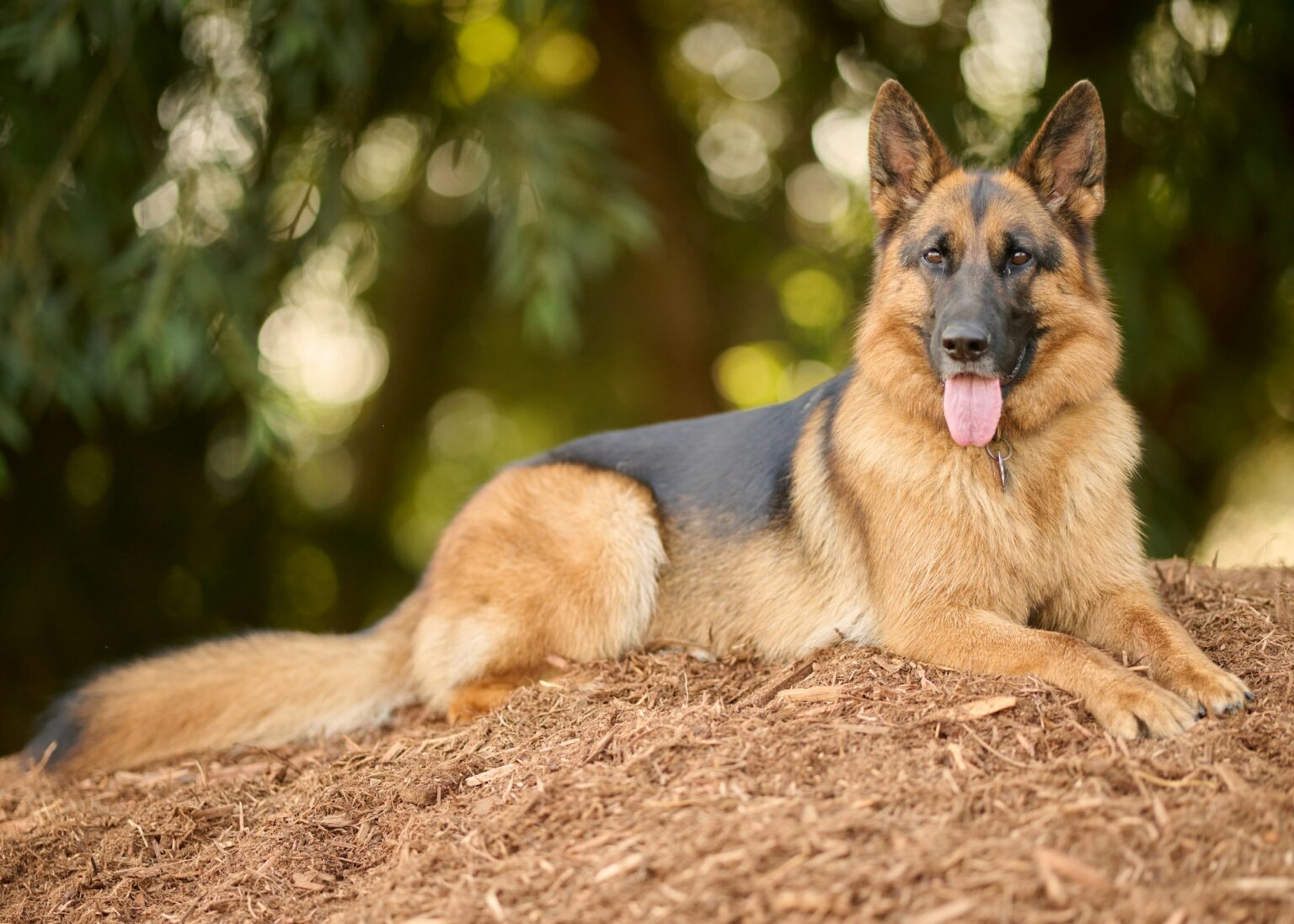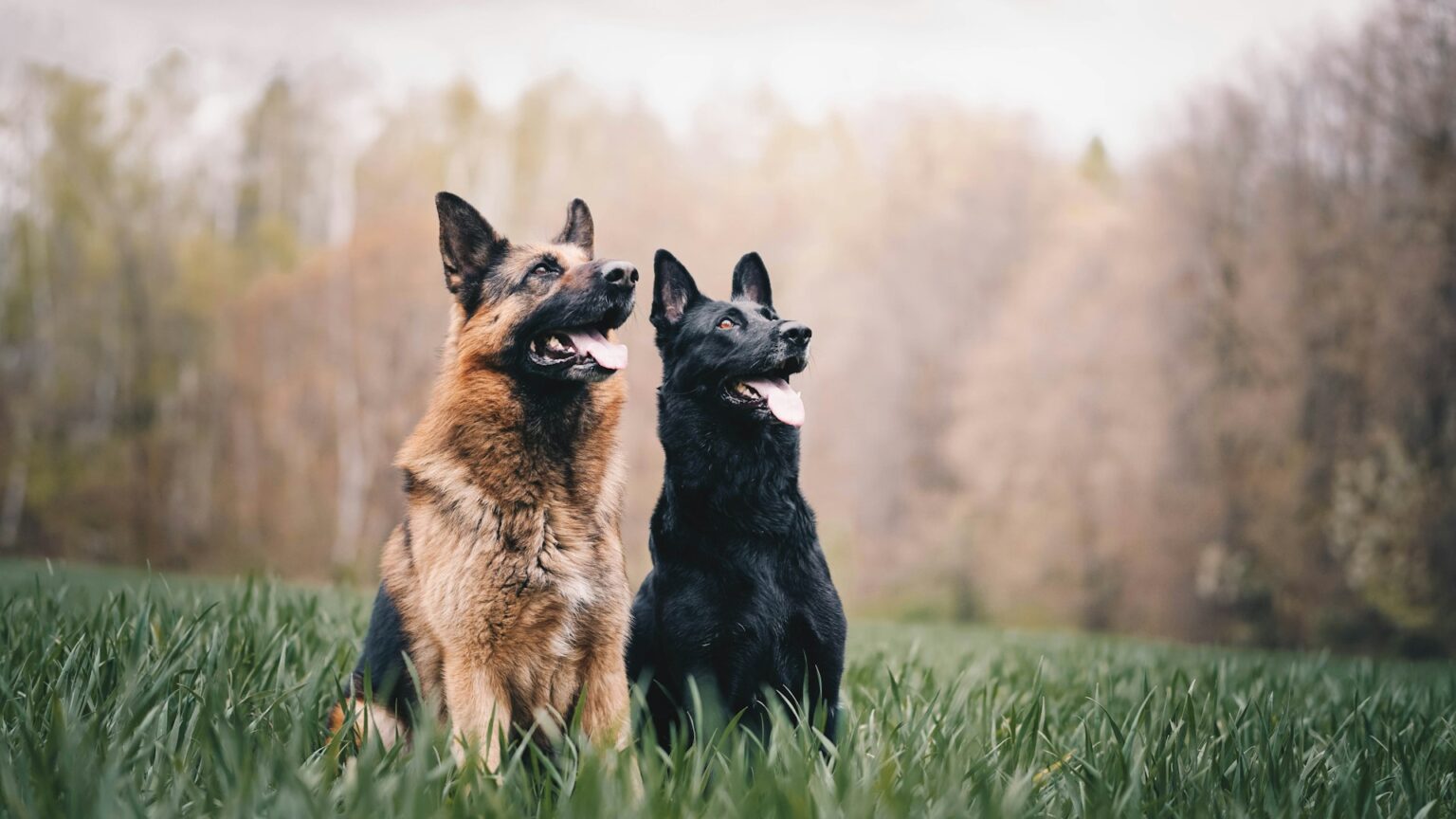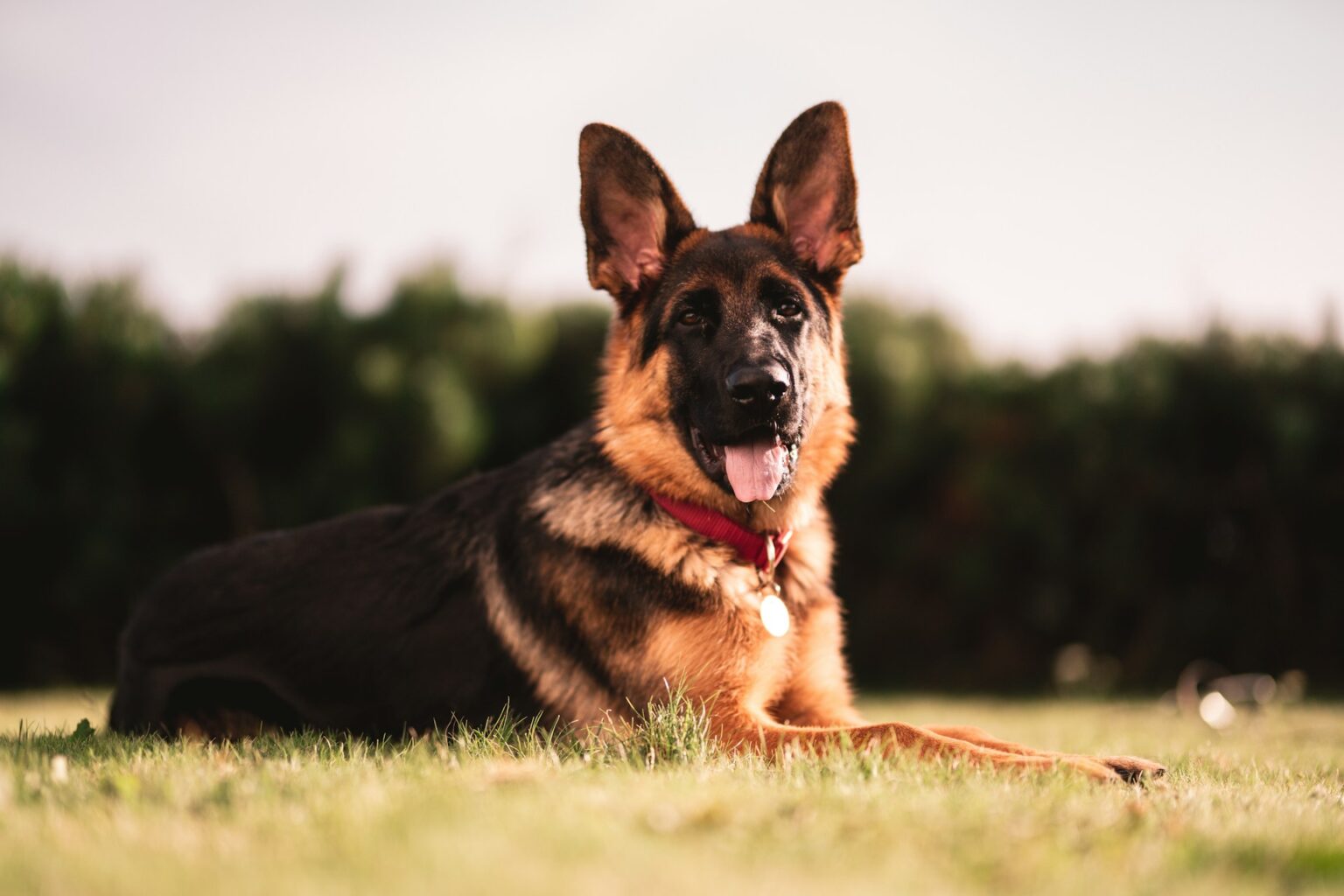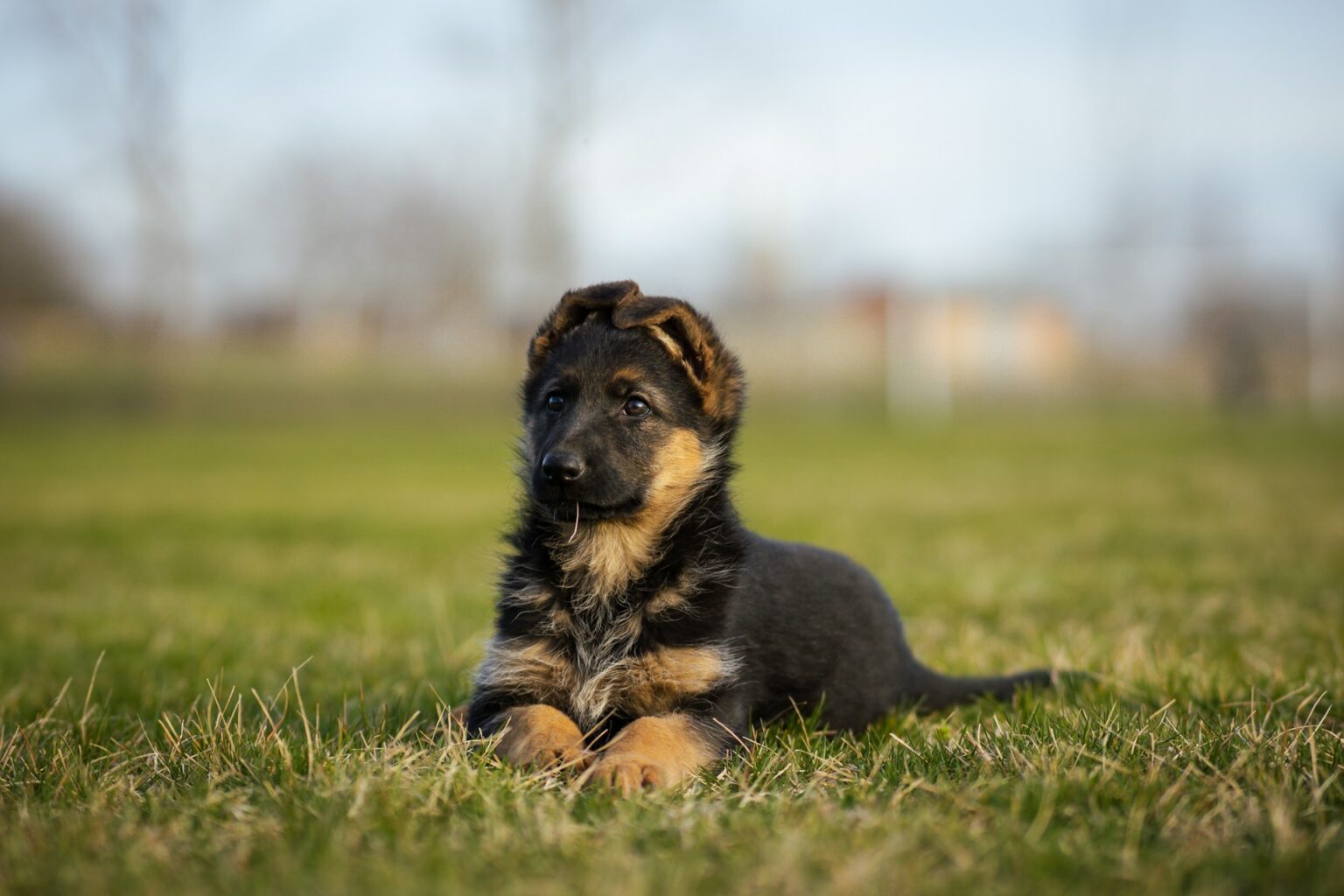German Shepherd
Also, keep in mind that some dog breeds will require special care or training. If you know the differences between the breeds, you will not end up disappointed, and this will ensure that you and your dog are happy. The dog is more than just an animal; it is a family member, so it is worth a little time to invest in getting to know it better. So, are you prepared for the German Shepherd? This pooch is one of a kind, for sure. But is it the right breed for you? Find out for yourself!
The German Shepherds are an interesting and extremely popular dog breed. But you should prepare yourself for the extremes of this breed and understand the responsibilities involved before you even consider adding this delightful friend to your home. German Shepherds are not for everyone. From a young age, these dogs need regular training and socialization. Health and care are essential, too. Since German shepherds are susceptible to specific conditions, routine vet visits and a special diet are critical. The owners should know these requirements to make sure that they have a good understanding of the breed. An appropriately-prepared owner will have a good, loyal partner in the German Shepherd.
Appearance
The German Shepherd is a majestic, recognizable dog breed. They have proportionate bodies and strong physiques and carry themselves with confidence. As adults, these dogs grow into the medium or large-size category. Depending on their gender and individual characteristics, their height and weight can differ. However, they are rather big dogs, and this is a con to keep in mind for future holders. German Shepherds are also strong, and it may be challenging for some individuals to leverage their pets on a leash.
German Shepherd has a two-layer coat made up of a waterproof top coat of medium length and a soft, thick undercoat that protects from the cold. Thus, the dogs are ready for any situation while playing outdoors! But their fur is quite long, so it needs to be taken care of, too. They have varied coat colors; the most typical is black with brown or red patches, but grey and black and white dogs also occur.
With their long muzzle and large, pointy ears, the dogs appear perpetually vigilant and on guard. They have almond-shaped dark eyes. The bite is scissor-shaped, and the teeth are strong, which is a valuable trait for working dogs. The tail of the German Shepherd is long. It is usually drooped or very slightly elevated but can flare up in instances of excitement or happiness. The tail is also well-furred and makes the dog look adorable. The look of the German Shepherd is graceful and elegant, and many people admire its beauty.
German Shepherd Breed History
The name simply suggests that the German Shepherd is from Germany. Because there in the late 19th century, people started working on breeding a dog that would be the perfect guard and assistant of a shepherd. In the beginning, German Shepherds were diverse in appearance and behavior.
Nevertheless, the dog Horand von Grafrath was entered into the registers and acknowledged as the first representative of this breed. A fascinated owner created the first breeders’ association in 1899, as the dog had a peculiar appearance and unique skills. So, fast forward eleven years, by which time the breed standards were formalized, and German Shepherds began their rise to prominence.
Due to their intelligence, these dogs also became police, rescue, and military dogs, shepherds, and guard dogs. The German Shepherd dogs were trained for army service during World War I and II. This make them even more popular. Over this time, they earned their place in history as one of the most dependable all-purpose working dogs. However, for some, this breed of dog was not associated with good things since they also worked with the enemy troops and were even owned by some infamous leaders with bad reputations.
However, it did not result in a drop in the breed’s popularity in the years that followed the wars. The dogs were bred line by line for both work and as companions. Even today, modern German Shepherds are still great working dogs, but they also never fail to be loyal and make excellent family pets.

German Shepherd Personality
Perhaps the most prominent characteristic of a German Shepherd is that they are super smart. This breed of dog has a very high capacity to learn new commands or instructions within a short period of time. In addition to this, these dogs tend to be highly cooperative with humans. This is why German Shepherds are highly appreciated and serve many essential purposes, as they are perfect for the job of being a watchdog, police dog, and more. They are also very perceptive. It shows how good they are at analyzing things since they notice changes in their surroundings or changes in their owners’ behavior quickly. That is why they are also good rescue and therapy dogs.
They have such a complex and intricate personality that makes them ideal companions for various groups of individuals. They are relatively easy to adapt to their environment but require their owners’ attention. However, they will reward them with fierce loyalty. In addition, dogs are also very friendly and gentle, but they tend to become suspicious towards strangers. As such, they require socializing from an early age to respond appropriately to strangers and other animals.
Apart from their strong-willed temperament, German Shepherds are also good family dogs because they are great with kids. They are very attached to their family and will defend them fiercely. Well-trained German Shepherds are not only great bodyguards; they are great friends and will bring much joy and love to your home.
German Shepherd Health
Many people dream of the German Shepherds as the dogs. But, future owners should be aware that purebred dogs tend to have specific genetic and acquired diseases. Good care, however, can greatly increase their quality of life and can prevent all types of health problems. Thus, we encourage you not to pick a canine of a selected breed based merely on price. It can be worthwhile to look for well-recommended breeders who have the relevant certificates and records to prove the dogs’ health and origin.
Regular vet check-ups can also help reduce the likelihood of diseases that certain purebred dogs may be predisposed to developing. A German Shepherd also requires proper diet, exercise, and mental stimulation to stay healthy. And if you decide to bring home this dog breed, learn what dangers they face and how to take precautions.
Joint Diseases
As big dogs, German Shepherds can get joint disorders. These problems are more likely to occur the older the dog. Hip dysplasia and osteoarthritis are the most widespread ailments. The symptoms of these diseases are subtle at first. Dogs will start walking slowly or stiffly. Often, owners observe dogs not willing to walk or play. After some point in time, the symptoms become more prominent, like the dog limping. Swelling may also appear.
Joint diseases cause extreme discomfort for dogs, and the inability to move freely also affects the quality of life. Behind your pet’s behavior and comfort are healthy joints, so it is also worth taking care of them proactively—without waiting for the first symptoms to appear. Therefore, a proper diet and care are essential to avoid this type of problem.
Ear Infections
German Shepherd owners should know these dogs are also prone to ear infections because of their structure of auricles and ear canals. There are also risk factors for these diseases. Common causes of ear problems are allergies or atopic skin disease. As a result, owners need to be on the lookout for the alarming symptoms of an ear infection.
If dogs are itchy, they may start scratching their ears with their paws, rubbing against furniture, or shaking their heads more often than usual. Dogs are sensitive creatures, so you will notice changes in behavior, too, because of the pain. In order to prevent these types of infections, owners must be extremely diligent in taking care of their doggy’s ears. Frequent visits to the veterinary clinic to examine the ear canal and flush the ears are also a good idea.

Diarrhea
Statistics reveal that the owners of German Shepherds are also more likely to report diarrhea issues to vets. The reason for this is that this breed of dog has a sensitive digestive system. Besides, diarrhea can also be a sign of many other common issues and diseases in these dogs, such as allergies or pancreatitis. This is why Shepherd dogs need a proper and healthy diet. This breed may be intolerant to lots of foods, so also beware of introducing new products into their diet. The best option, however, is a vet-adjusted diet to the unique necessities of the German Shepherd.
Obesity
Another reason why it is important to take care in feeding German Shepherds is that these dogs are genetically prone to being obese. The problem is compounded by improper care. So, the maintenance of dogs of this breed implies sufficient physical activity, good choice of food, and specific feeding rules. It is also important to monitor for obesity post-surgery in either surgical sterilization or castration. Being overweight can expose German Shepherds to other diseases (like diabetes and joint diseases), so it is important to maintain the correct weight.
Behavioral Problems
Behavioral problems are among the most common disorders in these dogs. German Shepherds may be aggressive if not trained properly. This is the case, particularly for males. Thus, owners need to understand that the proper behavior of these dogs must be trained, which will take time and dedication. Shepherds need to be socialized and trained from early on, especially if children or other pets are in the home.
If a German Shepherd considers a stimulus as threatening, it can also react aggressively in order to defend its owner. This means they may also be more aggressive toward strangers, so their behavior on walks must also be supervised. Dog aggression is a complicated issue with numerous potential origins, including anxiety. Responsible owners must know the reasons for this behavior to eradicate the problem.
German Shepherd Care
German Shepherds require proper care to live a long and healthy life, both physically and mentally. There are proper environments and equipment to sleep and play. A safe environment is a must. A proper diet is important. Exercise is equally necessary to ensure that dogs are fit and well-mannered. Moreover, training correctly will prevent problematic behavior. Due to their long hair and predisposition to certain diseases, German Shepherds also require grooming. With the right care and attention from their owners, German Shepherds can look forward to the very best years of their lives as awesome companions. Discover the best way to raise a dog of this amazing breed.
Safe Environment
German Shepherds need a special place to feel comfortable. So now, think about where you live and if that suits the needs of this breed. Big dogs thrive well in large houses or houses with yard space where they can run and play freely. Additionally, a fence is required so that German Shepherds do not run away from your property out of curiosity. These are very active dogs, so if you do not have a backyard, bear in mind that these dogs have a lot of energy and need a place to stretch their legs and release excess energy.
Indoor German Shepherds require a warm and quiet place to relax in the home. They have to have their own bed where they can sleep. They can also need lots of people’s attention because dogs are very social animals. Leaving a dog of this breed alone for a long time will lead to mood disorders and stress, so do not do so. They can also play with other pets but must be prepared for such relationships through socialization.
These smart pups also require loads of mental stimulation. You can use their potential. Interactive toys are a good idea. When dogs are not provided with the essentials, they tend to misbehave. German Shepherds are known to be aggressive, so a safe environment is essential to minimize this problem.

Diet and Nutrition
To keep a German Shepherd feeling their best, they require a special diet. Large dogs with high activity levels need a protein-rich diet to aid muscle development and recovery. Controlling weight is yet another key element of a German Shepherd’s diet. It is worth using the right portions of food and avoiding high doses of treats because of the propensity for obesity. It is also advisable to pay attention to the proportions of carbohydrates and fat in the diet.
With pancreas issues and a sensitive digestive system, a low-fat and easy-to-digest diet is best. Also, do not give dogs human food and leftovers from dinner. German shepherds are commonly victims of food allergies, so it is best to see how the dog reacts to the various ingredients and, if needed, seek the help of a vet to find a suitable diet.
Physical Activity
Remember that if you would like a German Shepherd, this breed needs a lot of exercise and stimulating mental activity. They are very high-energy animals, as the dogs were used for work from the start of the breed. While a simple walk is a staple of their daily routine, German Shepherds need more vigorous exercise. These dogs love to run or fetch, which is a good way to spend time with them.
They can also suffer from joint disease, so be careful not to overload them with exercise. Not that they will all suddenly stop being active, but the amount of movement tends to drop a bit with age—older canines are especially prone to this.
You should also consider introducing exercises that combine physical effort with cognitive challenges. Dogs are very bright, so they need mental stimulation. Training can satisfy this demand and ensure the dog’s proper behavior.
Grooming
German Shepherds have a heavy, double coat, so they require special grooming care. This breed sheds year-round, so expect some fur on your clothing! You should comb the dogs regularly, at least once a week or more. If German Shepherds get dirty from playing outside, they can also be bathed. Since this breed has a tendency to be allergic, always use hypoallergenic dog shampoo.
The primary goal remains to balance the health of the ears because of common ear infections. You must regularly check the ears for dirt and ear wax to prevent this. With the help of special preparations, you can wash your pet’s ears. Do not put the cotton wool in the dog’s ear canal to avoid damaging the eardrum. It is also recommended that the ears be well-dried after bathing or exposure to water to avoid the growth of pathogens that cause infections.
Training
German Shepherds can be very territorial and aggressive, so they need guidance early on. Early socialization allows them to learn how to behave with other dogs and people. Not socializing them can lead to the worst behavior and, in some cases, make them turn to attack. So, in the end, if you are planning to bring a German shepherd home, never forget the training.
The German Shepherd is one of the smartest breeds of dogs and tends to be a natural guard and protector. This is why they adapt quickly and happily. Positive reinforcement should be the basis of training. Dogs will thrive under a consistent leader who is patient with their progress. But if you have no idea where to start, you should seek advice from a behaviorist. They can be the best guard dog and a great family companion if raised properly.

German Shepherd Dog FAQs
German Shepherds are a phenomenal breed that has special needs and requirements. But are you certain that this is the breed for you? Or do you remain skeptical? Before getting your dog of this breed, check out some key info below.
Is a German Shepherd a Good Family Dog?
German Shepherds are considered great family dogs. For kids, they can be pretty gentle. They are very loyal and courageous dogs that defend their owner against any threat. But they should be trained at a young age so they do not have bad habits.
How Much Does a German Shepherd Cost?
A German Shepherd puppy may run you a thousand dollars to several thousand. Adopting an adult dog of this breed will cost you less money. But ensure that you are working with a breeder who has good reviews and is treating their dogs well, and providing them with the highest standards.
What Size Is German Shepherds?
Adult German Shepherds are medium to large-sized dogs. A well-built adult can be around 23-24 inches/60 centimeters tall and weigh between 50 pounds/22 kilograms and 90 pounds/40 kilograms.
Source
- Dan G. O’Neill, Noel R. Coulson, David B. Church, Dave C. Brodbelt (2017). Demography and disorders of German Shepherd Dogs under primary veterinary care in the UK.
https://link.springer.com/content/pdf/10.1186/s40575-017-0046-4.pdf
- German Shepherd
- Appearance
- German Shepherd Breed History
- German Shepherd Personality
- German Shepherd Health
- Joint Diseases
- Ear Infections
- Diarrhea
- Obesity
- Behavioral Problems
- German Shepherd Care
- Safe Environment
- Diet and Nutrition
- Physical Activity
- Grooming
- Training
- German Shepherd Dog FAQs
- Is a German Shepherd a Good Family Dog?
- How Much Does a German Shepherd Cost?
- What Size Is German Shepherds?







